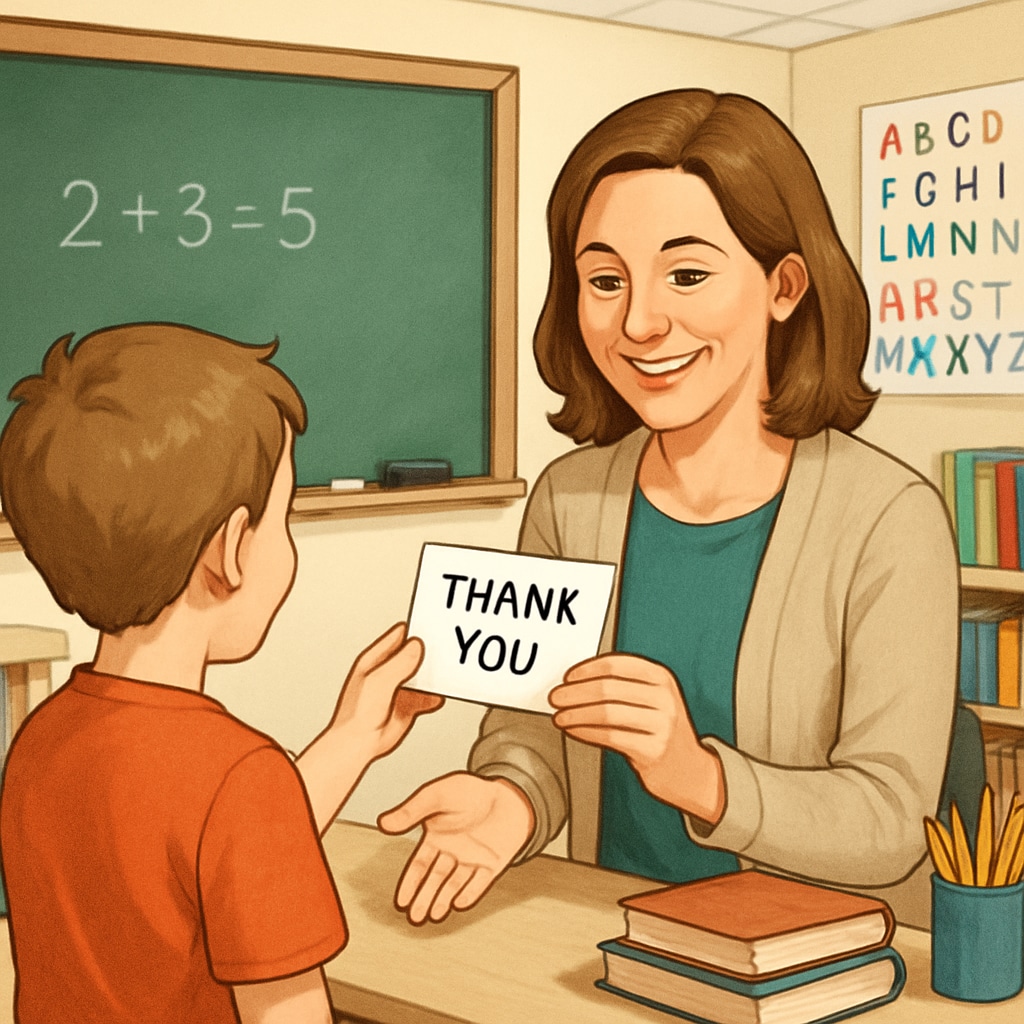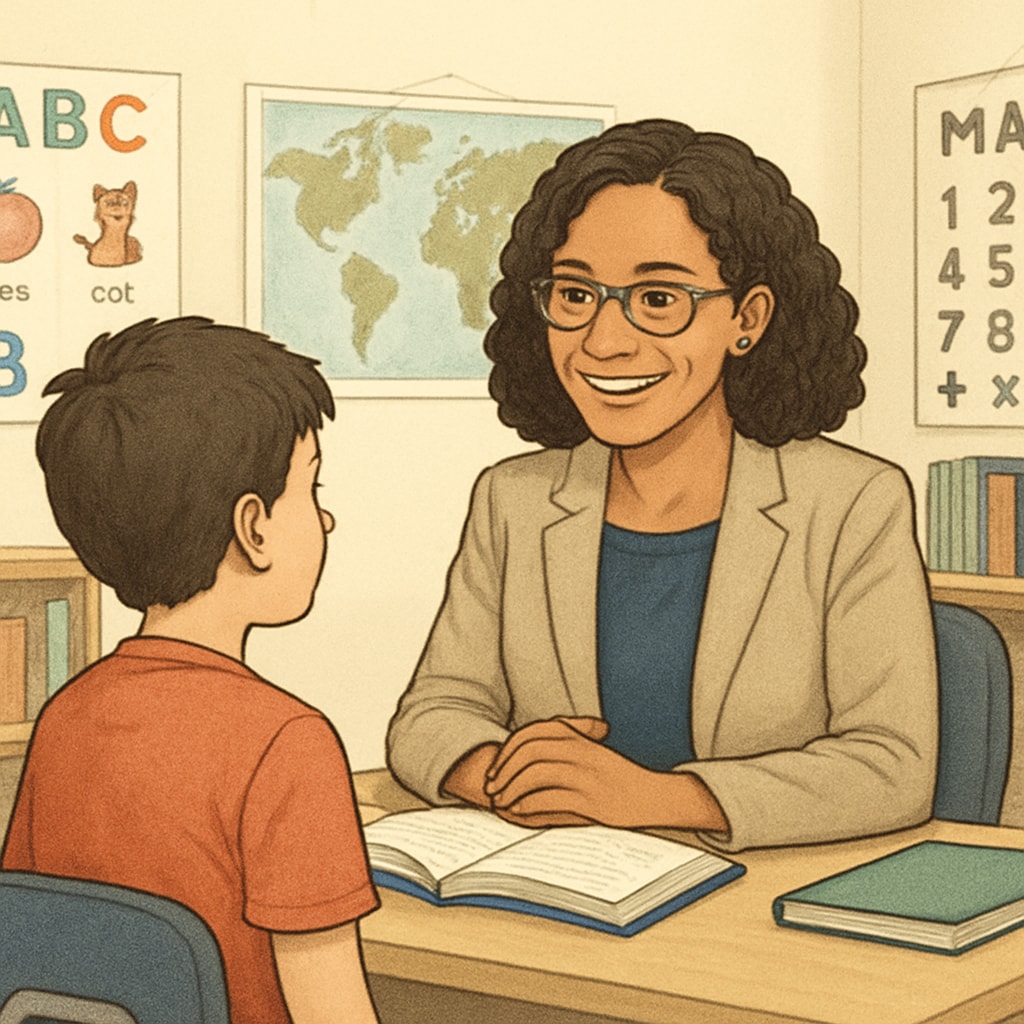In the realm of education, the seemingly simple act of student gratitude holds transformative power. A heartfelt “thank you” from a student can signify far more than polite manners—it reflects the profound teacher impact and the role of respecting student voices in fostering meaningful connections. When educators listen to and value students’ perspectives, they not only inspire personal growth but also unlock the true essence of education: the creation of mutual respect and lifelong motivation.
This article delves into the deep significance of student gratitude in the learning process, exploring how it strengthens teacher-student relationships and reaffirms the importance of nurturing self-worth through acknowledgment and respect.
The Transformative Power of Student Gratitude
Gratitude, especially when expressed by students, has the unique ability to create a ripple effect in the classroom. Educators often go above and beyond to inspire and guide their students, yet a simple “thank you” can be the most meaningful reward for their efforts. This expression of gratitude not only reflects appreciation but also affirms the teacher’s influence in shaping a student’s journey.
When students express genuine gratitude, it is often a reflection of the respect and care they have received. Teachers who prioritize understanding and respecting student voices create an environment where students feel valued. This sense of value encourages students to actively participate in their education, fostering intrinsic motivation and self-confidence.

Building Stronger Teacher-Student Bonds
One of the most critical aspects of education is the bond between teachers and students. A strong, respectful relationship lays the foundation for effective learning. When teachers make an effort to acknowledge and respect their students’ perspectives, they create a sense of trust that enables open communication.
For instance, a teacher who listens attentively to a student’s challenges and offers personalized guidance demonstrates that the student’s voice matters. In return, the student feels empowered and motivated to excel. This dynamic fosters a positive feedback loop, enhancing the overall educational experience for both parties.
Moreover, these bonds extend beyond academic achievements. Students often carry the lessons of respect, empathy, and gratitude into their personal and professional lives, further amplifying the teacher’s impact on society.

Respecting Student Voices: A Catalyst for Growth
In education, respecting student voices is not merely an act of courtesy—it is a catalyst for growth. When students feel heard, they are more likely to engage authentically with their learning. This engagement fosters creativity, critical thinking, and a deep sense of ownership over their education.
For example, a classroom that encourages open discussions and values diverse perspectives creates a safe space for students to express themselves. This approach not only boosts their confidence but also teaches them the value of collaboration and mutual respect. As a result, education becomes a shared journey rather than a one-sided process.
Educators can take simple yet effective steps to respect student voices, such as:
- Encouraging open dialogue and active participation in lessons.
- Providing constructive feedback that acknowledges individual efforts.
- Incorporating student suggestions into classroom activities and projects.
By implementing these practices, teachers can cultivate an environment where gratitude and respect flourish organically.
The Lasting Impact of Gratitude in Education
Ultimately, the impact of student gratitude extends far beyond the classroom. For teachers, it serves as a reminder of the profound influence they have on their students’ lives. For students, expressing gratitude reinforces their understanding of respect and encourages them to acknowledge the contributions of others.
Furthermore, gratitude has been linked to numerous psychological benefits, including improved well-being, stronger relationships, and increased resilience. By fostering a culture of gratitude within the classroom, educators can help students develop these qualities, preparing them for success in all aspects of life.
As educators and students continue to navigate the ever-evolving landscape of education, it is essential to remember the significance of mutual respect and gratitude. A simple “thank you” can indeed become the most profound echo of education’s true purpose.
Readability guidance: The article uses short paragraphs and clear headings to improve readability. Lists are included to summarize actionable points. Transition words such as “for example,” “as a result,” and “moreover” help maintain a natural flow.


